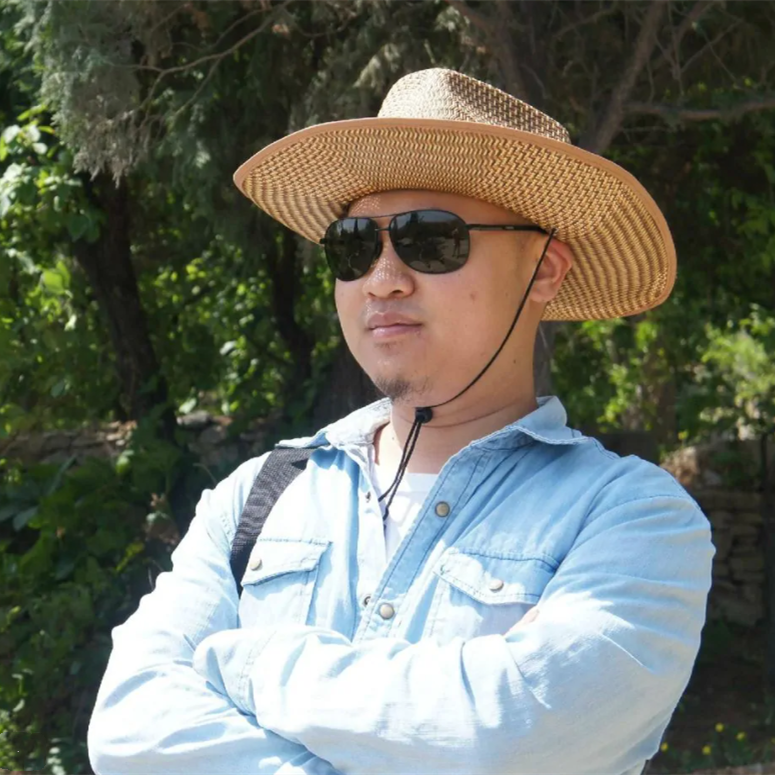Ma Yuxian
Organized by CT. on 2022-03-09

Ma Yuxian, music producer and instrument teacher. Member of the Chinese Sheng Society, Vice President of the Hulusibawu Professional Committee of the Art Education Committee of the Shandong Provincial Department of Education, and senior instructor of the Hulusibawu Professional Committee of the Art Education Committee of the Shandong Provincial Department of Education.
Ma Yuxian was born in a musical family in Jinan, Shandong Province. Influenced by his family, he began to study music at the age of 12. In 2000, he was admitted to the Heze National Orchestral Vocational Secondary School, where he studied sheng under Hu Tianquan. From the age of 17 to 20 years old, he won the first prize of national national musical instrument performance, the second prize of original instrumental music works and various provincial and municipal awards. At the age of 22, he was admitted to the Hangzhou Conservatory of Music. During the school, he took a variety of musical instruments and electronic music production and composition majors. After graduating with excellent results, he opened his own music studio and is the core figure of the entire production team.
Representative works: "The Sadness of the Grey Wolf", "Love Is Not Far From", "We Are On The Road After 1980", "Pocket Money".
Similar artist
Bian Ge is a young Chinese flute player, flute and flute teacher, and music creator. He is good at flute, xiao, xun, ocarina, cucurbit flute, bawu and other wind instruments.
read >>
Ding Xiaokui is a young wind musician of the Central Chinese Orchestra.
read >>
Ma Yicheng, male, born in the 1990s, born in Kunming, graduated from Huaqiao University School of Music and Dance with a major in Musicology. He is currently a member of the Yunnan Musicians Association Hulusiba Wu Society and a member of the Fujian Province Hulusiba Wu Professional Committee.
read >>
Luo Wenjun, who walked out of Guizhou and went to the world with a Konoha, is now a national first-class actor and a famous Konoha performer in the Guizhou Provincial National Song and Dance Troupe.
read >>
Hu Meiling is a young teacher of the Folk Music Department of the Conservatory of Music, and a postgraduate tutor.
read >>
Involving musical instruments
Xiao (pinyin: xiāo), divided into dongxiao and qinxiao. And because the flute has a hole, it is different from the pan flute without a hole, so it is called "dongxiao". The xiao has a long history, the sound is round and soft, quiet and elegant, suitable for solo and ensemble. It is generally made of bamboo with blow holes at the top.
Hulusi (pinyin: hú lu sī), also known as "calabash flute", is a musical instrument of ethnic minorities in Yunnan. Hulusi originated in Lianghe County, Dehong Dai and Jingpo Autonomous Prefecture, and is mainly popular in Dai, Achang, Wa, De'ang and Brown. The Dehong and Lincang areas in Yunnan where ethnic groups live together are rich in local colors.
The middle tone Sheng (pinyin: zhōng yīn shēng) is a kind of Sheng, and the most commonly used traditional Sheng is 17 springs. After the liberation, new varieties such as amplifying sheng, plus key sheng, turntable sheng, low-pitched sheng and row sheng were successfully trial-produced, with a variety of reeds.
Bawu (pinyin: bā wū), alias Bawu, Gebi, Bai, Bilu, Ule, is a bamboo-winded and copper-reed musical instrument, popular among the Yi, Miao, Hani and other ethnic groups in Yunnan.
Guzheng (pinyin: Gǔ Zhēng), also known as Hanzheng and Qinzheng, is an ancient national musical instrument of the Han nationality and is popular all over China. It is often used for solo, duet, instrumental ensemble and accompaniment of song and dance, opera and folk art. Because of its wide range, beautiful timbre, rich playing skills and strong expressiveness, it is known as the "King of Music", also known as "Oriental Piano", and is one of the unique and important national musical instruments in China.
Involved portfolio
Involved news
Organized by 花昼 on 2025-01-20
For everyone who loves music, especially those who love traditional instruments such as Bau, it is essential to know how to properly care for their instruments in winter.
read >>
Organized by 尼禄 on 2024-03-08
Among the many ethnic wind instruments, hulusi and Bawu are the most distinctive ethnic instruments in Yunnan Province. They are melodious and easy to use, and are welcomed by music lovers. For beginners, whether they should learn fenugreek or Bawu first needs to be comprehensively considered according to the characteristics, playing skills and personal interests of the two instruments.
read >>
Organized by 亦寒 on 2022-06-30
"Raising the spirit of the times, showing youthful demeanor, and setting sail for the dream". On June 27th, the 2nd Tongliang District Children's Talent Competition of "Like Youth" ushered in the finals. 40 children from primary and secondary schools in Tongliang District entered the final PK link of this Longxiang Youth Talent Show.
read >>
Organized by 某某 on 2022-06-20
In order to fully implement the party's educational policy on the all-round development of morality, intelligence, physique, beauty, labor, improve students' artistic literacy, promote students to improve their personality, and learn art. From June 13th to 17th, 2022, Tiantai Primary School held a competition with Meibau. In this competition, the participants are all students from grades one to five, and the competition is carried out by class.
read >>
Organized by 默妍 on 2022-06-10
The difference between cucurbit and bawu is not much, the range is the same, and the fingering is basically the same. It can be said that it is very simple for you to learn the cucurbit silk and want to learn Bau. Of course, there are improved Bauga keys, which are different from cucurbits.
read >>

 渝公网安备 50010702504639号
渝公网安备 50010702504639号